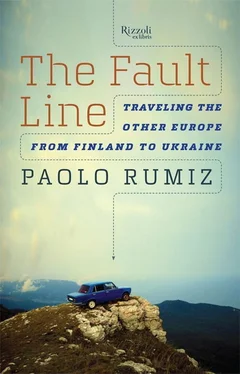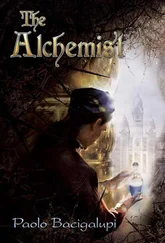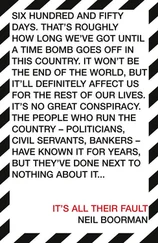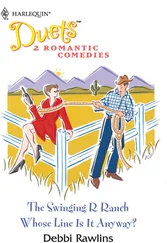They rattle slowly down the track, and between one train and the next, the inhabitants of Murmansk have all the time they need to walk across the track, which skirts the city on an embankment parallel to the fjord. Yes, the seaside. Vladimir, captain and teacher at the nautical college in Murmansk, explains to me that it is a strategic resource and not a place to promenade as it is in Saint Petersburg. He has sailed all over the world, but he has never been allowed to enter the base at Severomorsk. It’s off-limits for him, too. He shows me a map of the city and says, “You see, you can’t go here, because it’s the commercial port; here neither, because it’s the fishing port; here don’t even think about it, because it’s the harbor for the motorboats that patrol the fjord.” That’s the way it is here in Murmansky Zaliv (Murmansk Bay). Here there is no seaside, and so the people dream impossible dreams of overseas. In this respect, the city incarnates perfectly the oneiric dimension of the frontier.
Thanks to the last lapping tongues of the Gulf Stream, the fjord of Murmansk is the only one on the Russian Arctic Ocean that doesn’t freeze in winter. Hitler bombarded it ferociously to cut off Stalin’s supplies. The photographer Yevgeny Khaldei took memorable photographs of those days. One especially, a reindeer under the bombs. That reindeer had become the city’s mascot. They had trained her to carry bombs to the front lines with a sled, but then they abandoned her, in a precipitous retreat. She followed the retreating trucks but then she gave up, and Khaldei immortalized that very moment of surrender, in which the betrayed animal gives up hope in mankind.
I read the signs along the street: LABIRINT food mart, RITUAL souvenirs, FARAON beverages. The triumph of psychedelic and New Age. In a bookstore, shelves of esotericism and astrology with gilded covers, too full of color, glittering. Here, too, the market encourages dreaming to keep people distracted from politics. The future has disappeared from book titles; the past is in vogue. Rasputin, the extraordinary epic of the czarist empire, the Romanovs killed by the godless evildoers. In the background, mystical melodies, elevator music. In the aisles, lots of security people, almost no salespeople.
It’s snowing again. On the ground, a batter made of compact white dust and beer-bottle caps with unusual labels and colors. As a kid, I would have collected them all, washed and shined them. The frozen mud is a cemetery of empty bottles, and all over town there are people collecting them, scientifically outfitted with wheelbarrows, to sell them and buy more bottles for themselves, full ones, in a self-fueled alcoholic chain. In the puddles, the reflections of all kinds of women. Superelegant as mannequins, wrapped up like peasants, wearing fur caps or with towers of carrot-red hair piled on top of their heads, women with almond eyes above Tartar cheekbones. We come across three of them walking spritely in the wind with the stride of a grenadier and blue balloons in hand; Monika follows them and arrives at a wedding, a Russian wedding with snow, a blond bride, and men in gangster sunglasses.
We go to the train station to buy our tickets for the South and we suddenly become cognizant of the distances. A huge notice board displays the travel times. Vologda, 36 hours and 51 minutes; Adler, 76:16; Astrakhan, 65:39; Minsk, 45:24; Saint Petersburg, 27:32; Novorossiysk, 75:21. I begin to understand why nobody ever makes this vertical journey. I look at the map and realize that if I turned Scandinavia on its head toward the Mediterranean, using Denmark as a hinge, I would arrive as far as Tunis. I’m incredibly far away; I can’t imagine how much time it’s going to take. This north-south direction is disconcerting. Europe is really a vertical formation.
Here in the North, the frontier is a real mirage. There is no road that skirts it. You can get to it only on endless dirt roads that split off like the teeth of a comb from the shaft of the main north-south artery, parallel to the train tracks. The phrase POGRANICHNAYA ZONA is written everywhere: Border Zone. And the instructions for getting there are posted everywhere, even in elevators, illustrated with pictures of guard towers, wolf-dogs, fences, and soldiers in white winter uniforms, with skis and snowmobiles.
The station is a comfit-green neoclassical building, a color fit for an aquarium. Inside, no chaos, just a relaxed coming and going of travelers and two big stray dogs, respected by everyone, sleeping on the floor between the information booth and the ticket window. In the waiting room with a glass wall, a calm crowd and a quiet buzzing. The people eat, argue, chat. I start up a conversation with a literature professor and a strawberry vendor. Both of them exhort me with sweeping gestures to visit the oceanographic museum with the story of the mythical icebreaker Yermak . Here waiting and meeting are completely coincident. In Cuba, I recall, I once gave a ride to a mother with two children who had been waiting for six hours, under a bridge, sheltered from the sun.
When I expressed my amazement at her patience, she replied, “Without that wait, I would have never met you.”
It’s June and it’s as cold as March. Hard times for the poor. Outside a supermarket, Monika comes across a bearded street person of undetermined age.
In Russia, the street people are more striking than those in the West. This man has a lazy eye and above it a horrible slash on his forehead, a wound that he has sutured himself, using wool thread. He looks around curiously with his one good eye from his pile of gray rags. He doesn’t ask for anything, but Monika gives him a hundred rubles, worth about five dollars. He’s overwhelmed with surprise, almost keels over from fear, then he gets himself together and responds with delight in his eyes. We also give him what’s left of our smoked fish, along with a freshly purchased loaf of rye bread as dark as licorice, and a bar of butter. We do some shopping for ourselves: dried pears, cookies, and special dark honey made from buckwheat flowers, one of the flavors of the Other Europe, like pumpkin seed oil.
We’re standing in a windswept square, waiting for a park ranger who has come down into the city from the nature preserve on the Kola Peninsula, our next stop. He’s a Muscovite, transplanted to the tundra, enamored of the extreme territories. Before leaving home, I phoned him from Italy to ask, among various other things, if there were already a lot of mosquitoes up there. He replied, in a plaintive, timid voice, “Here it’s snowing,” and that phrase, coming to my ear from so far away, disturbed by interference, suddenly put me in tune with the other world.
While we’re waiting, I take a look around that frigid square, shivering in my layers of lightweight clothing. At the bus stop, I’ve just seen a motor coach bound for Nikel, the end of the world. It was full of people steeped in dignified desperation. There is no shelter from the gusting wind. A decommissioned Soviet hotel towers over our heads. The name is written on the thirtieth floor: ARCTIC, in 3-D Cyrillic. It comes to mind that, in anticipation of warm summer days in the lake country, I had put some mosquito netting in my pack. Nothing could be more useless. Some summer this is. It’s snowing to beat the band, the trees are stripped bare, the season is at least a month behind. Then I realize that I’m thinking of the Baltic Sea as if it were the Mediterranean.
We go to dinner with Ivan Vdovin—that’s the name of the park ranger—and talk about reindeer and mines. Finally, a little warmth. An accordion player plays a heartrending piece by Vladimir Vysotsky, and our waitress brings us a soup called solyanka , plus a herring with beets. Ivan tells us about the plight of the Arctic reindeer herders, pushed off the land by the nuclear submarine bases on the Barents Sea, driven southwest by the nickel mines, cut off from Lake Imandra by the railroad, deprived of the tundra by the industrial pollution in Monchegorsk, robbed of their rivers by American salmon fishers, who have been given a twenty-five-year license to fish on half of the peninsula. And then there’s the Yokanga, the most beautiful river on the peninsula, with the new shoreline villas of the Russian nouveaux riches, as well as the Swedish companies that have leased entire mountains for gold mining. Not to mention the poaching of moss, a vital food for the reindeer, of which hundreds and hundreds of tons have been exported to the West to decorate the tombs of the rich. “Europe decorates its cadavers with the reindeer’s font of life,” is the comment of Mariusz Wilk, a Polish writer transplanted to Karelia, north of Saint Petersburg. Ivan studied mineralogy in Moscow. Then they sent him to work in the North, where he developed a passion for the Sami people. After a few years, he was given the job of managing the nature preserve near Seitajärvi, and then the entire Kola Peninsula. A huge task, almost hopeless, to be carried out with virtually no means at his disposal, but he keeps at it, explores his world as best he can, in the winter with a snowmobile, in the summer with a motorized deltaplane, an ultralight sport glider. The obstinate persistence of the Sami people to keep living in those latitudes, to the chagrin of all their enemies, is a sacred mystery, as is the survival of the antlered moss eaters. It doesn’t take us long to size each other up; in these desolate latitudes, an encounter is a rare opportunity that must be seized at the moment it’s offered. It’s eleven o’clock; outside, the sky is ablaze.
Читать дальше












